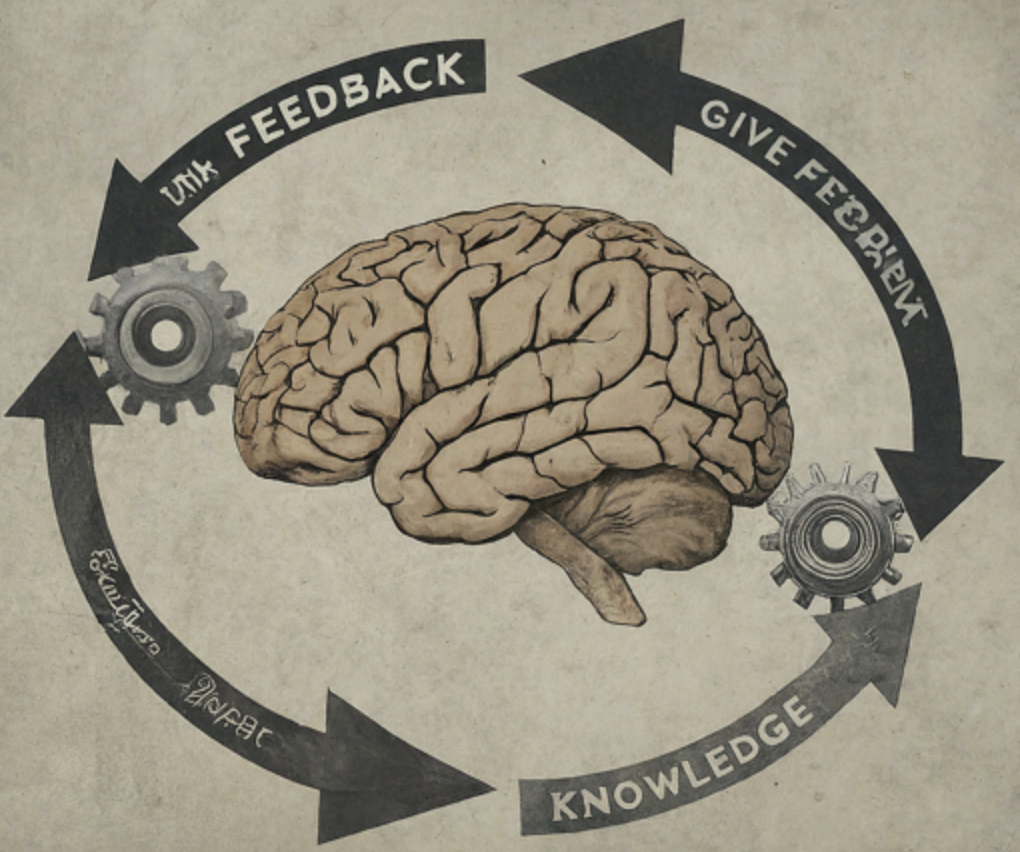In the realm of online learning, knowledge acquisition is just one piece of the puzzle. Meaningful feedback acts as the catalyst, propelling members towards growth and mastery.
Within your Skool community, a robust feedback loop fosters a culture of continuous improvement, where members learn from each other, refine their skills, and achieve their learning objectives.

Unlocking the Potential of Feedback:
The benefits of implementing a strong feedback loop within your Skool community are multifaceted:
- Enhanced Learning Outcomes: Constructive feedback helps identify areas for improvement, promotes critical thinking, and facilitates deeper understanding of the course content.
- Improved Skill Development: By providing and receiving feedback on projects, assignments, and discussions, members hone their skills, learn from diverse perspectives, and gain valuable insights.
- Increased Confidence and Motivation: Receiving positive reinforcement and constructive criticism bolsters confidence, keeps members motivated, and encourages them to strive for excellence.
- A Culture of Continuous Improvement: A healthy feedback loop fosters a growth mindset within the community, where learning is seen as an ongoing journey rather than a destination.
Creating a Feedback-Friendly Culture:
Building a safe and supportive environment is essential for fostering a culture of constructive feedback. Here’s how:
- Set Clear Expectations: Clearly communicate the importance of feedback within the community and establish guidelines for respectful and constructive communication.
- Lead by Example: Actively participate in discussions, model how to give and receive feedback effectively, and acknowledge the value of member contributions.
- Celebrate Openness and Vulnerability: Encourage members to be open to learning and willing to receive feedback, highlighting that it’s a sign of commitment to growth.
- Focus on Positive Reinforcement: Begin feedback with positive affirmations, highlighting strengths and accomplishments before offering constructive criticism.
Implementing Meaningful Feedback Practices:
Now, let’s turn theory into action! Here are strategies for effective feedback sessions:
- Focus on Specific and Actionable Feedback: Avoid vague comments and instead provide specific examples and actionable suggestions for improvement.
- Ask Insightful Questions: Instead of telling members what to do, ask open-ended questions that encourage them to reflect and identify solutions for themselves.
- Prioritize Growth over Judgment: Frame feedback as a tool for development, focusing on helping members learn and refine their skills rather than placing blame.
- Offer Personalized Feedback: Tailor your feedback to each member’s needs and learning styles, ensuring it’s relevant and impactful.
Leveraging Skool Features:
Skool provides a plethora of tools to streamline feedback exchange:
- Peer Review Assignments: Utilize Skool’s built-in functionalities for peer review activities, allowing members to provide constructive feedback on each other’s work.
- Discussion Forums with Feedback Prompts: Incorporate feedback prompts within discussion threads, encouraging members to actively analyze and offer insights on their peers’ contributions.
- Private Messaging for One-on-One Feedback: Facilitate personalized feedback through private messaging, allowing for in-depth discussions and individual guidance.
- Community Recognition Tools: Highlight valuable feedback contributions through badges, awards, or recognition features within Skool.
By fostering a feedback-friendly culture, implementing these strategies, and leveraging Skool’s tools, you can cultivate a thriving feedback loop within your Skool community. Watch as your members empower each other, refine their skills, and embark on a rewarding journey of continuous learning and growth!
